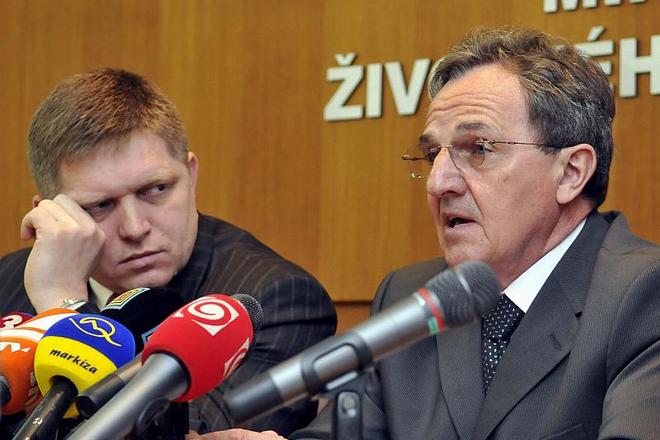Toll collection faced protests from truckers – On January 1 Slovakia’s National Highway Company started operation of a new electronic toll collection system requiring trucks and buses heavier than 3.5 tonnes to pay tolls electronically on about 2,000 kilometres of highways, dual carriageways and certain sections of first-category roads. The toll system was built and is operated by SkyToll, whose bid for the 13-year contract, worth €850 million, was selected after all other bidders were excluded on various grounds. Truckers immediately began protests against imperfections in the system, and even by the end of 2010 some truckers claimed that not all the bugs had been ironed out. The tender drew flak from EU officials in Brussels: Slovakia must respond before January 1, 2011, to EC objections or face possible court action and sanctions. The EC believes rules on equal treatment and non-discrimination were violated in the tender process. The state had expected to collect about €165 million in highway tolls from the new system in 2010 but income was only €130.4 million in the first 11 months.
New NBS governor appointed – President Ivan Gašparovič formally appointed Jozef Makúch to the post of governor of the National Bank of Slovakia (NBS) on January 12. Makúch replaced Ivan Šramko. Makúch had been appointed a member of the NBS board in 2005 and took up his post in 2006. He had served as NBS executive director for security and premises since 2007.
Interblue morphed into a Swiss firm – Interblue Group, the mysterious US-based firm which regularly made headlines in Slovakia because of its questionable deal in purchasing Slovakia’s quotas to emit 15 million tonnes of carbon dioxide at a price well below what neighbouring countries received, ceased to exist in late December 2009. The legal rights and obligations of the US firm – originally registered to a lock-up garage in Snohomish, a small town in Washington State; the company hence became known in Slovakia as a ‘garage firm’ – were transferred to a new company based in Switzerland. Even though the Environment Ministry did not acknowledge the legality of the transfer, it now seems certain that Slovakia lost as much as €66 million on the sale to Interblue Group and the country has thus far failed to collect an additional €15 million that it says Interblue owes Slovakia for having used the original proceeds for ‘green’ projects.
Two ministries closed – On January 19 the Fico cabinet officially approved the closure of the Ministries of Environment and of Construction and Regional Development as standalone bodies and the transfer of their powers to other ministries. After the Radičová government took power in July, the responsibilities of various ministries were juggled again. The Ministry of Environment was re-established and responsibility for overseeing the construction sector that had been transferred to the Economy Ministry was deposited in the Ministry of Transport, Posts and Telecommunications.
Regulator capped mobile phone charges – Ladislav Mikuš, the chairman of the Slovak Telecommunications Office, the country’s regulatory authority, established the maximum prices that mobile operators can charge each other for call terminations. Orange Slovensko and T-Mobile Slovensko were ordered to charge no more than €0.0635 per minute to all telecommunications operators, including fixed line operators, between February 2010 and the end of January 2011. The cap for mobile operator Telephónica O2 Slovakia was set at €0.0768 per minute.



 Robert Fico's fifth environment minister, Jozef Medveď, failed to resolve the debacle involving Interblue Group. (source: ČTK)
Robert Fico's fifth environment minister, Jozef Medveď, failed to resolve the debacle involving Interblue Group. (source: ČTK)